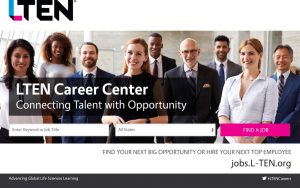
Getting Full Value With Full Spectrum Learning
FEATURE STORY – By Joseph Hirt
True growth requires both elements of the learning spectrum.
Are your employees getting the full value of their development opportunities?
The purpose of any training session is to bring value to colleagues by generating practical and actionable takeaways that can be implemented. So how do we know if employees are maximizing those opportunities? How can you put participants in the best place possible to grow from a training session?
When you look at each end of the learning spectrum, employees can be exposed to new concepts or they can further develop validated concepts. To deepen a growth opportunity for a colleague is a meaningful objective and supports personal development. True growth requires both elements of the learning spectrum, new and validated learning.
 A new concept or skill is exciting. It’s easy to gravitate toward. However, that doesn’t mean it is the most impactful takeaway from a training session. Validated learning is “a concept the participant has previously been exposed to and is being reinforced.” We need to keep in mind that just because participants are currently utilizing a skill, that doesn’t mean they have unlocked its full potential.
A new concept or skill is exciting. It’s easy to gravitate toward. However, that doesn’t mean it is the most impactful takeaway from a training session. Validated learning is “a concept the participant has previously been exposed to and is being reinforced.” We need to keep in mind that just because participants are currently utilizing a skill, that doesn’t mean they have unlocked its full potential.
Understanding Mindset
Many participants think that to grow, they must learn or implement something new. That is part of the equation.
The biggest contributor to growth is mastering validated skills. An unscientific survey of 43 employees from multiple industries, ranging from individual contributor to CEO, was conducted to understand participant mindset before and after a learning session. Specifically, what was their focus regarding learning new and validated concepts?
The survey highlights that more than 95% of participants were more focused —
heading into training — upon exposure to new concepts. In conjunction with that, 90% of those same individuals said their takeaways from training sessions were comprised of new learnings.
There is no doubt that participants received value from their training. However, imagine what their growth might look like with a more balanced mindset. This shows a correlation between a participant’s mindset and what their takeaways will be post-training.
An analogy that comes to mind is purchasing a new car. Suddenly, in town or on the highway, you consistently see that same car you just bought. Is it that everyone decided to buy the same car as you, or is it that your mind is searching for the same car you just purchased?
If new learning is the only thing on our minds, no wonder that is what we take away from training.
 Strengthening a Strength
Strengthening a Strength
Participant feedback after a training session typically centers on what was “new.” It’s much less frequent to have colleagues highlight a validated concept as a growth point.
The most effective way to drive better outcomes is to develop an employee’s strengths into greater strengths. This directly speaks to validated skills: Take a strength and strengthen it. Making a strength stronger will produce better outcomes for the individual and the corporation. Additionally, using strengths from validated skills with new concepts ensures high acceptance and application of both skills, creating longer-term success with new concepts.
If we think about how training programs are constructed, this concept becomes more relevant. Programs are commonly set up to create a stepped approach. Each subsequent session goes deeper into that same subject or skill set.
Colleagues who discount validated learning can potentially discourage themselves before a training even starts.
Layered learning is imperative to effect development. Multiple touches on content, layered over time, reinforce concepts and allow for application and retention outside of the session. By emphasizing the importance of validated learning, we start to realize that the same employee can be coached on the same topic or attend the same training and grow each time! Over the years, a participant will grow by experiencing the same content through a different lens.
How Does That Look?
Prior to beginning a management role, an individual contributor attends a workshop to understand how to be a situational leader. He or she then attends the identical session a year later, as a manager. Because that individual has new experiences, new responsibilities and a broader perspective, he or she will internalize and utilize the content with a deeper level of effectiveness.
And yet, some would return to the session saying, “What else could I take away from this? I attended it already.” The change in the participant’s mindset, experience and perspective allows the participant to grow to a higher level with the same validated content.
Leadership Skills
Across multiple industries, the skills that have been consistently mentioned to me as skills a quality leader must possess are: influencing and inspiring others, communication skills, decision-making and emotional intelligence. These are topics that can take years to master.
Could one training session be enough to master these imperative skills? Definitely not. While some focus could result in a developing strength, leaders who overlook these validated skills as an area of opportunity may never reach their true potential.
Let’s highlight communication, a top skill for leaders to master. A manager who has been in the role for a few years has most likely been involved in several challenging conversations as a leader. That leader attends training for “engaging in challenging conversations.” When reviewing a solid methodology to navigate these conversations, the leader starts to think about three direct reports that would benefit from this training.
While it’s not a negative to think of your team, that leader is neglecting the fact that he or she can strengthen his or her own abilities from such training. Did the leader really maximize the session? If that manager faced the content inward, a new level of mastery would commence.
Helpful Tactics
There are a handful of tactics that can help navigate this issue and maximize training. Some tactics will push participants, and others will pull them toward growth. Immediate fixes stem from the coach or facilitator.
- How ready is your audience to learn? Do your participants recognize that going deeper into existing skills is essential for their growth? Ensuring your audience is fully prepared mentally prior to a session is crucial.
- What launch assignments are participants completing prior to a session? Are you asking them what they already know about the topics and how they plan to master those skills?
- When debriefing a session, are you asking pointed questions to push the participant to focus on mastery of the validated skills discussed? Simple questions like, “Were there any concepts discussed that were not new for you? What can you take from this session that will help you build upon these skills?”
- What does the continuum look like? Are there actionable items identified to implement? Is a timeline for growth set up, post-training? Did you generate a follow-up mechanism?
Encourage the leaders of your participants to seek out what validated concepts were discussed in the class. Ideally leaders should identify if their participants have a plan to master the validated concepts that they reviewed. When you don’t have balance, you must help to create it, to have your participants realize the full benefit of your offering.
Self-Leadership
A long-term solution is to reinforce self-leadership with your participants. The more your colleagues implement this skill set, the better balance of learning they will generate. Enhancing self-leadership could present as:
- Being more proactive with follow-up and implementation.
- Removing assumed constraints, such as, “I already know this; I don’t need to focus on it.”
- Becoming a subject matter expert with a skill to create a point of power for the individual.
Self-leadership will create a pull for the participant, not a push.
Overlooking validated concepts will prevent the maximum value of training from being reached. The good news is there are tactics to guide participants toward a tremendous growth journey, and in the process advance individual and team performance.
Joseph Hirt is a director of leadership development, U.S. commercial, for AbbVie.









